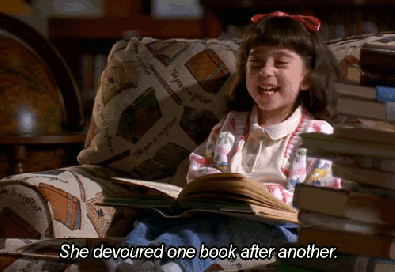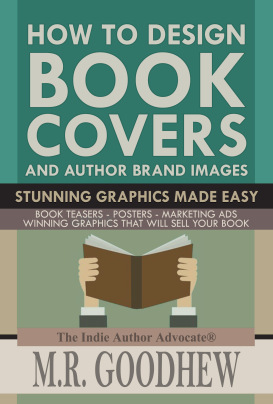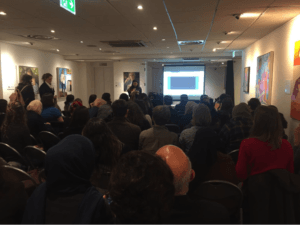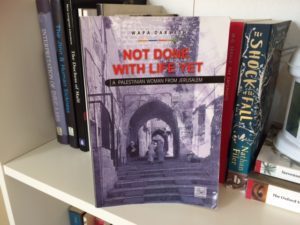Shereen Malherbe's Blog, page 22
December 16, 2016
An Interview with Zeba Talkhani of the Muslim Women Speak Micro-Festival
[image error]
Originally posted on Muslimah Media Watch
Last month, Waterstones Book Store in London hosted Muslim Women Speak, “a micro-festival of interactive sessions curated, chaired and presented exclusively by Muslim women.”
The festival was curated by Zeba Talkhani and was designed to let Muslim women speak about their own experiences in the publishing and writing industry in the UK. Shereen Malherbe spoke to Talkhani to find out a bit more about the event.
SM: What inspired you to curate and host MWS?
ZT: I love literature festivals and make time to volunteer and attend as many as I can. In the past few years, I was struck by how I knew amazing Muslim women writers and publishers in my personal life but wasn’t seeing this fact reflected in the mainstream literature circles. The idea behind MWS was to change that. Representation is important and I want young Muslim women and women of colour to have amazing role models and get a chance to interact with these women.
SM: What were the speakers’ main messages to the audience?
ZT: The speakers on the day were varied in their background and experiences, but the common thread linking them was their positive attitude and their decision to not let lack of representation or even misrepresentation derail their work. These are women are challenging stereotypes and doing so in their own unique ways. Hala Abdullah was in London that evening from Saudi Arabia and shared her experiences of starting a female only writing club and how it’s giving young women in Saudi Arabia a voice. When asked about the pessimist nature of our society she was unfazed and responded that the club is making a difference for these women. And that’s what sets Muslim women and people of minority apart – they focus on the positive aspects of our society and work towards making these traits popular by doing what they do.
SM: Was there anything surprising that came from the event that you would like to share?
ZT: I can’t imagine why, but at the time I was surprised by the amazing turn out and the interest and curiosity surrounding the event. It was heartening to see non-Muslims in the audience and it just reiterated the fact that there is an interested audience and it’s time the publishing and media gatekeepers realise this. I’m hoping more such events will help that.
SM: It was set in Waterstones bookshop. How important is it that Muslim women write their own narratives?
ZT: It’s important that everyone writes their own narratives and I see a lot of Muslim women doing just that. One of my personal favourite’s is Ayisha Malik’s Sofia Khan is Not Obliged. It’s more than just a Muslim Bridget Jones; it’s something that’s never been done before. Its immediate success and the fact that there is going to be a sequel soon proves that there is room for own voices and publishers need to understand that.
SM: Do you think the landscape for UK publishing is changing for Muslim women?
ZT: Yes, things have definitely improved. There is also an increase in independent publishers who are doing a great job in amplifying own voices and creating inclusive environments for Muslim women and women of colour. I think it’s also important that we have other platforms working hard to challenge mainstream media narratives.
SM: What are the challenges?
ZT: I think the biggest challenge Muslim women face in the literary world are unconscious biases. Because of the lack of representation, a lot of people have misguided notions about Muslim women and I think this acts as a barrier for our success. But Muslim women are definitely changing this by speaking up and positively engaging with the world.
SM: In your opinion, are the voices and authentic narratives of Muslim women starting to eradicate stereotypes?
ZT: Of course, there is no doubt about it. I think this is where social media comes into play. Those who seek authentic voices can now find them online. Platforms such as She Speaks We Hear and sister-hood magazine are transforming the way we think about Muslim women. And then there are brilliant Muslim women role models who are redefining our understanding of the roles of Muslim women in modern society and helping eradicate stereotypes by being themselves.


December 15, 2016
5 ways to become a bookworm
I still remember the books from my childhood.
That children’s encyclopedia with King Tut on the front. I used to constantly read through the facts in that battered old book.
The Bouncing Buffalo, where an antique buffalo’s head comes to life, bringing excitement to two children (less creepier than it sounds, I promise).
I remember this wonderful hardback collection that I cannot remember the name of (it’s really frustrating) of various fairy tales and children’s stories, all narrated by bears. I remember the hardback cover becoming tattered and falling off at the hinges because of the number of times I’d reread.
Not to mention Jacqueline Wilson, Roald Dahl, and J.K. Rowling. My childhood was a flurry of make-believe games fueled by words.
I adored books.

Then I grew up, became a teenager, and my reading habits changed. I read less frequently, and only what seemed to be the popular books. I still read and reread…
View original post 558 more words


December 6, 2016
Cover Reveal

A Work in Progress:
I’m in the throes of a rewrite of the first draft of my new book. It is just a blast to have the opportunity to get all of the knowledge I’ve amassed under one title. It’s a go-to guide that will help writers represent their work with stunning visual graphics they create themselves.
I am blogging about my process to get some insight from those of you out there on what your main concerns are and to make sure I miss nothing that will aid you in creating all your own graphics just like a professional designer.
Cover Reveal!

It’s a work in progress and I plan to have it launched by spring at the latest. I’ll be offering it for free at first as a thank you to all of you who give me feedback throughout the writing process.
What’s Inside:
I have crammed everything…
View original post 350 more words


December 4, 2016
5 things I learnt from NaNoWriMo 2016
I love hearing about NaNo writing success because 50,000 words in one month is no easy task!

For those who don’t know, National Novel Writing Month (NaNoWriMo) is an annual writing event where writers all across the world are invited to write 50,000 words within November.
Yes, I actually managed it. To write 50,000 words in 30 days. To brave the early mornings, with bleary eyes and cold limbs; the frantic late nights, with aching feet and exhausted bones. This month, where my mind had completely crippled its creative capability, only to have a few hours sleep to recharge for the next day.
In 2015 I only managed 35k, which, at the time, I thought was quite an achievement. Now I’ve reached the ‘official’ finish line it feels great, but I still haven’t finished writing the novel. It’ll probably be another 50k before I do!
Here are the 5 things I’ve learnt this year, and hope that it encourages a budding writer to take part in next year’s frenzy:
1. Don’t let your…
View original post 729 more words


November 15, 2016
Why Are Men Speaking for Muslim Women in Literature?
What is your favorite book? You might be like me and have too many to mention. Of those books, which characters are your favorite? Do they represent you?
The answer to this, in the majority of western published literature is probably no. If you are represented, have another look at the author — is the author part of your demographic?
As one example, I think of Khaled Hosseini and his bestseller, “A Thousand Splendid Suns.” His book centers around two Muslim women and is written by a man.
Should that matter? I think it does.
We need to consider why men are allowed to speak for us. This is not a critique of Hosseini — it is a critique about how others seem to be filling in the literary gaps to narrate our stories. There are increasing opportunities to be heard through various online platforms that capture our voices. These platforms are filtering into mainstream and providing alternative narratives to the stereotypical representations of Muslim women that usually dominate the media — but it isn’t enough.
We need to consider why men are allowed to speak for us.
Last year, I studied classic literature as part of my english literature degree and something struck me. The classics that define an era from modern classics such as Sam Selvon’s, “The Lonely Londoners” to Emily Bronte’s, “Wuthering Heights“ have shaped future generations and given us snapshots of a bygone era. They have allowed us to share insights into differing perspectives of history.
In modern literature, the representation of Muslim women is slow, with self-published or independently published titles still dominating in this demographic. Self-publishing is an empowering platform and one we can use to overcome barriers from an industry who tend to reinforce the status quo, or give our narrative to an already popular selling male author to write. With the lack of support from a major publishing house or an agent, the quality of some self-published literature still isn’t competing with mainstream.
How can it when mainstream literature often has an entire team behind the whole process? Publishing is a business. Books making money can be a risk, the market is shifting and it is no wonder professional agents and publishers don’t have the time to support many up and coming authors.
In modern literature, the representation of Muslim women is slow, with self-published or independently published titles still dominating in this demographic.
Now I want to see another revolution; a literary revolution. How?
As readers, we can share and review books from authors.
Take the time to post reviews, they really do make a difference.
Be active in your selection of books, consider who they are written by and who they are aiming to represent.
As writers, be yourself. Don’t imitate a trend or an author who is selling well- any trend is likely to have long passed by the time you are ready to market.
Take your time before releasing your writing onto a platform. Join critiquing groups and read widely.
Don’t be afraid to ask your favorite author if they can mentor you. I am not saying bombard them with an epic unedited manuscript, instead start slow!
Reach out, share your ideas, share a synopsis or a first chapter. As authors, we can support writers as they begin to write their books.
By creating a community where we support each other’s work, it will begin to change our representation in books and allow the quality of what we write to increase, giving us a real chance of being part of the fabric of mainstream western literature. We are starting to be heard in news. They recognize we have voices and opinions — but we are still being excluded from mainstream literature — still being denied our voices and our contributions to society. We continue to be tossed aside — lost.
Join me and start a literary revolution. Now is the time to write our own stories. Our voices, our words, our aspirations have power. We need to write and create the classics of our generation so our stories remain etched in people’s consciousness and make a lasting change that stands the test of time.
What are you waiting for? As classic writer, William Wordsworth said, “To begin, begin.”
Shereen Malherbe is a British-Palestinian writer. Her novel, Jasmine Falling is available to buy worldwide. To find out more visit www.ShereenMalherbe.com & tweet @MalherbeGirl
This article was originally published on Muslim Girl


November 6, 2016
When The Death Took Its Toll
Heartbreaking reality ‘…the sacrifice of life for being poor.’
This is a story of a girl named Zainab and through this story, I want her to be remembered because no one else would keep her memory otherwise.
I am sorry that your story shall be remembered only after your death, I wish I was able to do anything more than writing about it.
As the story goes, she breathed in a poor family. Life had already figured out the difficult track for her even before she decided one for herself, something that makes you question the realities of life, of how long can we go in our choices in deciding about our life? Or just when we get to think that we are about to decide something, life leaves us alone in the hands of death.
I remember the day I visited her in the hospital. It was just another day in October. Something about October afternoons makes it very…
View original post 763 more words


November 5, 2016
Book Review: Wafa Darwish’s Memoir, Not Done With Life Yet
I recently discovered Not Done With Life Yet on my bookshelf and I was surprised it had hidden itself away from me for the last year. I received it as a gift from my cousin on my last trip to Palestine. She handed it to me at the end of my trip when I had finished researching my own book based there. At the time, I hadn’t the time to read since all my spare moments were used for writing.
I finally began the book and it was easy to read. I liked the author’s style. She keeps the writing simple but it echoes a vivid snapshot of the decades it spans with interesting insights into a time in history I wasn’t alive. Published in 2014, Not Done With Life Yet is the memoir of Wafa Darwish, a Palestinian woman from Jerusalem. Darwish’s pet tortoise, allegedly born on the same day as she was, becomes an analogy of her own life “trying to protect itself from a cruel world outside, it moves slowly, but in the end manages to survive.” From an early childhood of belonging, to the discovery of her declining visual impairment at age 8, Darwish tells her story of how she managed to finish her education “through Braille and other means” to become a professor and Dean of Birzeit University. Darwish’s memoir gives a unique glimpse into her vulnerability during a time of war, a single mother of two daughters with an insight into the world of revolutionaries who became the new professors of our generation.
As her memoir opens, Darwish situates herself in her daughter’s empty bedroom as she listens to the sound of her dog eating whilst reminiscing about her childhood. Her memories begin in the first house where she was born, “on the street that carried my family’s name until I don’t know when.” Reading this and being aware of the current situation in Jerusalem makes it ever more poignant and hints to me that there is something transient about this state and the history the house contains. Extravagant artifacts – the Hishe ceramic jars that “A hundred decades back or so” were each filled with gold and gifted to the sisters of her family married off to Turkish princes, and the handmade miniature furniture set carved out of “good wood better than much furniture wood used in most houses today” – reflect the history, wealth and historical status of the family that the backdrop of this house provided. The physical description of the house combined with its proximity to Al Aqsa, whose call to prayer can be heard from the house’s yard, creates an opening to the book that throws you back to a Jerusalem that would be unrecognizable to most Palestinians today.
For Darwish, the houses she lived in shaped her experiences. She writes that “Summers in the Darwish old city house were beautiful and active.” She remembers the garden like a slice of “paradise” and the parties her grandmother had with the house full of friends, singing, dancing and cooking. Remembering that “Living in that house then, meant possessing culture and hence identity,” Darwish links identity and belonging to the place she was raised in Jerusalem. The loss of the house signifies the start of a more troubled and tougher life.
As she grows older, Darwish is moved to different houses with her family, and her good grades decline, leaving her subjected to “cruel treatment,” as her teachers, unaware of her visual impairment, struggle to understand why her work has deteriorated. A turning point comes as Darwish is hit by a truck and almost dies, since she “did not see it” when crossing the road. This event brings to light the seriousness of the decline in her vision and thus the decision is made for her to attend a school for the blind, only visiting home at the weekends.
The world Darwish invokes through her writing is incredibly visual, you almost feel like you can see it, forgetting that the world she sees wouldn’t be the same because of her disability. However, her vulnerability is made incredibly apparent as she is left with a young child during the war in Beirut: “I always imagined us dying trodden over on the staircase by the feet of people…as their lives would be more dear to them than a blind person tumbling down the stairs with a baby.”
Throughout her journey, Darwish travels from to Lebanon, Egypt, Cyprus and back home again, through two failed marriages, the threat of war, the joy and companionship of friends along the way, some of whom end up being her colleagues in her later life. Despite her disability, displacement and marginalization from her community as a single mother of two girls, she manages to finish her PHD and go on to become an academic figure in Palestine having “worked at Al Quds University and at Birzeit University as a Dean, Head of Department and Lecturer.”
At the end of the book, she reminds us that she is back in her daughter’s empty room as she listens to the sound of the dog crunching on dry food. The imagery of that mundane scene makes her survival and growth (including her return to her homeland in her academic position at one of Palestine’s top universities) stand out so intensely
For more information view the book on Goodreads or contact the publishers, Dar Al Shorouk.
By Shereen Malherbe, published via Muslimah Media Watch


November 3, 2016
Essential Advice for Your First Draft
I do agree with this completely. I don’t edit at all during the first draft. I write everyday on one master document with no chapters only a few subheadings

The beautiful torture of the writing of the first draft does not have to be a painful experience. From what I understand, the key to getting the story down is to stay at it, moving forward to the finish.
We are all guilty of it. We’ve all, at the very least, glanced back at what we’ve written. It’s all so very tempting just to hear how our story is playing out up to that point. However, the best advice in this instance is to hold yourself back from any proofreading or editing of what you’ve written until the story has been laid down entirely. Get the writing of the first draft complete, no matter how rough or unruly. Only when you’ve finished that draft should you revisit what you’ve written.
Pausing to look back on what you’ve written before finishing that first draft can get you stuck in that section…
View original post 211 more words


November 1, 2016
Looking for NaNoWriMo Buddies!
If any fellow NaNo writers want to buddy up…

Friend me at http://nanowrimo.org/participants/michelle-rene-goodhew …
Daily Word Count for 11/01/2016 – 2004


October 23, 2016
Review: Stained by Abda Khan
I closed my eyes. I wanted to see nothing, I wanted to feel nothing. I just wanted darkness, blackness, but my eyes kept dragging me back to it all. And still, all I could hear was the tick tock, tick tock, tick tock. I put my hands over my ears, desperately trying to banish the incessant noise that was on repeat in my head, to no effect. How was I ever going to get that sound out of my head? Tick, tock, tick, tock, tick tock….

Stained is a story of a beautiful intelligent young British Pakistani woman whose life’s aspirations and dreams are put on hold due to the scandalous actions of a supposedly trusted member of society. This is only the surface summary of the story. The book delves into weighty and sensitive issues that those involved and those who look on, wish to sweep under the rug rather than face it head on…
View original post 500 more words











